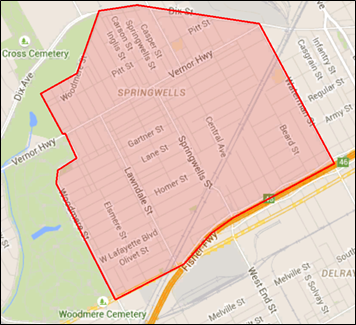Southwest GHHI Program
Making homes safe and healthy
Call (855) 577-2807 to find out if you may qualify for the following services:
• Home repair loans and grants
• Lead abatement grants
• Refrigerator replacement
• Smoke and carbon monoxide detectors
• Utility and/or water assistance
• Home safety products and education
• Energy efficiency education
• Asthma and allergy management education
Southwest GHHI Program Overview
Each home will receive basic products and repairs including smoke and carbon monoxide detectors, door or window locks and car clubs. Eligible families will also be referred to local organizations that may be able to provide additional repairs and services. This may include, depending on need and family finances, lead abatement or home repair through the City of Detroit Housing and Revitalization Department or refrigerator or furnace repair or replacement through DTE Energy and CLEARCorps Detroit. In addition, the Southwest GHHI Program will educate families on how to keep their home safe, healthy and energy efficient moving forward with the hope that residents will be encouraged to make additional health, safety and energy efficiency investments in their home outside of what this grant can cover. Students would be provided with handout materials that they could take home to their parents or guardians to educate them about how to keep their home safe, healthy and green.
Partners
- AmeriCorps Urban Safety Project
- Asthma and Allergy Foundation of America – Michigan Chapter
- Bridging Communities, Inc.
- City of Detroit Housing and Revitalization Department
- CLEARCorps Detroit
- Congress of Communities
- DTE Energy
- EcoWorks
- Kohl’s Injury Prevention Program at Children’s Hospital of Michigan
- Michigan Department of Health and Human Services
- Springdale-Woodmere Block Club
- Urban Neighborhood Initiatives
- Wayne Children’s Healthcare Access Program
- Wayne Metropolitan Community Action Agency
- Wayne State University Center for Urban Studies
Target Area
The Need
Building on Existing Efforts
1 This data is collected using the Healthy Homes Rating System (HHRS) as developed by HUD. For more information about this tool, visit http://portal.hud.gov/hudportal/HUD?src=/program_offices/healthy_homes/hhrs.
2 Krieger J and Higgins DL. Housing and Health: Time Again for Public Health Action. American Journal of Public Health. 2002; 92: 758-768.

